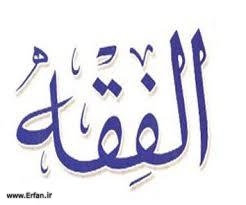Philosophical and Theological Thought in Shi'ism

- Publication date: 2017-08-27 19:45:54
- Number of views: 453
It has been mentioned before that Islam has legitimized and approved rational thought, which it considers a part of religious thought. Rational thought in its Islamic sense, after continuing the prophecy of the Prophet, provides intellectual demonstrations of the validity of the external aspect of the Qur'an, which is a divine revelation, as well as of the definitely established sayings of the Prophet and his noble Household.
Intellectual proofs, which aid man in finding solutions for these problems through his God-given nature, are of two kinds: demonstration (Burhan) and dialectic (jadal). Demonstration is a proof whose premises are true (accord with reality) even if they be not observable or evident. In other words, it is a proposition which man comprehends and confirms by necessity through his God-given intelligence, as for example when he knows that "the number three is less than four." This type of thought is called rational thought; and in case it concerns universal problems of existence, such as the origin and end of the world and of man, it becomes known as philosophical thought.
Dialectic is a proof all or some of whose premises are based on observable and certain data, as for example the case of believers in a religion for whom the common practice is to prove their religious views within that religion by appealing to its certain and evident principles.
The Holy Qur'an has employed both these methods and there are many verses in the Holy Book attesting to each type of proof. First of all, the Qur'an commands free investigation and meditation upon the universal principles of the world of existence and the general principles of cosmic order, as well as upon more particular orders such as that of the heavens, the stare, day and night, the earth, the plants, animals, men, etc. It praises in the most eloquent language intellectual investigation of these matters. Secondly, the Qur'an has commanded man to apply dialectical thought, which is usually called theological (kalami) 1 discussion, provided it is accomplished in the best manner possible, that is, with the aim of manifesting the truth without contention and by men who possess the necessary moral virtues. It is said in the Qur'an, "Call unto the way of thy Lord with wisdom and fair exhortation, and reason [jadil," from jadal] with them in the better way (Qur'an, XVI, 125).
____________
1 Editor's note: Kalam is a special discipline in Islam; the word is usually rendered into European languages as theology, although the role and scope of kalam and theology are not the same. Henceforth, the kalam itself, which is now gradually coming into use in English, will be employed in its original Arabic form and will not be translated.
